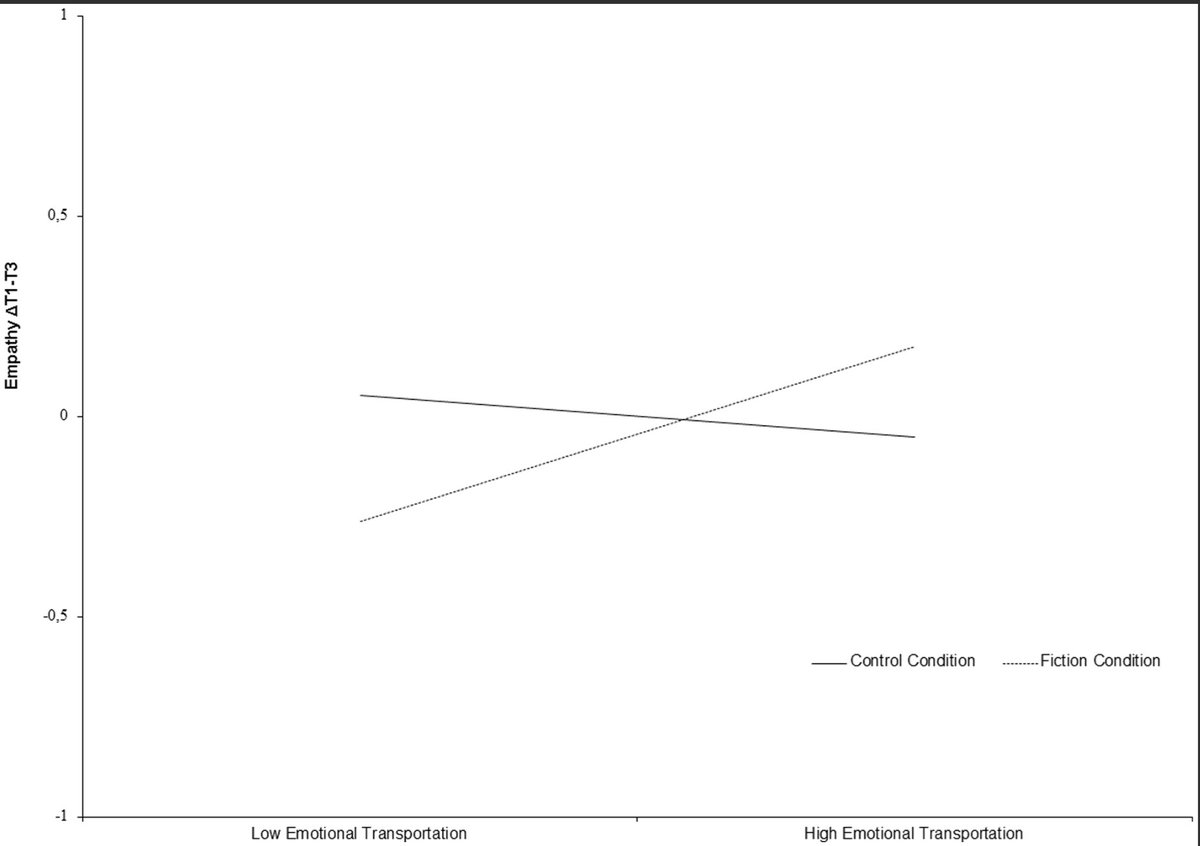Stories move the world.
Yet, few people in the tech, venture, or broader business worlds seem to read the great works of fiction.
Instead, we focus on productivity or business books, light on wisdom. I think this is a mistake.
A few reasons why https://abs.twimg.com/emoji/v2/... draggable="false" alt="👇" title="Rückhand Zeigefinger nach unten" aria-label="Emoji: Rückhand Zeigefinger nach unten">
https://abs.twimg.com/emoji/v2/... draggable="false" alt="👇" title="Rückhand Zeigefinger nach unten" aria-label="Emoji: Rückhand Zeigefinger nach unten">
Yet, few people in the tech, venture, or broader business worlds seem to read the great works of fiction.
Instead, we focus on productivity or business books, light on wisdom. I think this is a mistake.
A few reasons why
First, a confession: I am biased.
Before I wrote a word of The Generalist, I spent 8 years working on a novel. (I hope to send it out this fall — I am working on my courage.)
I have always preferred reading fiction to practical non-fiction.
Now, onto the rationale.
Before I wrote a word of The Generalist, I spent 8 years working on a novel. (I hope to send it out this fall — I am working on my courage.)
I have always preferred reading fiction to practical non-fiction.
Now, onto the rationale.
1
Why is fiction special?
Because it asks us to put ourselves in the minds of others in a way that is not possible with other art forms.
Film gets close, but representing inner dialogue and the cast of a character& #39;s mind is a unique strength of fiction.
Why is fiction special?
Because it asks us to put ourselves in the minds of others in a way that is not possible with other art forms.
Film gets close, but representing inner dialogue and the cast of a character& #39;s mind is a unique strength of fiction.
2
That& #39;s because when you read fiction, the story happens *inside* your brain.
The author writes the story but *you* create the world, filling it with richness and detail. This is a radical communion.
TV is different. The world is created already — you& #39;re there to watch.
That& #39;s because when you read fiction, the story happens *inside* your brain.
The author writes the story but *you* create the world, filling it with richness and detail. This is a radical communion.
TV is different. The world is created already — you& #39;re there to watch.
3
This produces several benefits. Reading literary fiction has been connected to improvements in:
- Empathy
- Critical thinking
- Handling uncertainty
- Theory of mind
This produces several benefits. Reading literary fiction has been connected to improvements in:
- Empathy
- Critical thinking
- Handling uncertainty
- Theory of mind
4
Empathy.
Fiction makes us more empathetic. We invest in the life of someone else, caring about what happens to them.
One study showed empathy increased in readers of fiction in as little as a week. There are many others.
https://journals.plos.org/plosone/article?id=10.1371/journal.pone.0055341">https://journals.plos.org/plosone/a...
Empathy.
Fiction makes us more empathetic. We invest in the life of someone else, caring about what happens to them.
One study showed empathy increased in readers of fiction in as little as a week. There are many others.
https://journals.plos.org/plosone/article?id=10.1371/journal.pone.0055341">https://journals.plos.org/plosone/a...
5
Critical thinking.
Remember the communion between author and reader? That& #39;s been suggested to improve critical thinking. The conversation that takes place on the page requires readers to do a more subtle kind of thinking.
https://hbr.org/2020/03/the-case-for-reading-fiction">https://hbr.org/2020/03/t...
Critical thinking.
Remember the communion between author and reader? That& #39;s been suggested to improve critical thinking. The conversation that takes place on the page requires readers to do a more subtle kind of thinking.
https://hbr.org/2020/03/the-case-for-reading-fiction">https://hbr.org/2020/03/t...
6
Handling uncertainty.
Works of fiction often end with ambiguity. By dealing with that murkiness, we learn to become comfortable with uncertainty, reducing our need for "cognitive closure."
That& #39;s been linked to decreased rationality + creativity.
https://www.tandfonline.com/doi/abs/10.1080/10400419.2013.783735">https://www.tandfonline.com/doi/abs/1...
Handling uncertainty.
Works of fiction often end with ambiguity. By dealing with that murkiness, we learn to become comfortable with uncertainty, reducing our need for "cognitive closure."
That& #39;s been linked to decreased rationality + creativity.
https://www.tandfonline.com/doi/abs/10.1080/10400419.2013.783735">https://www.tandfonline.com/doi/abs/1...
7
Theory of mind.
Our ability to understand that other people hold beliefs and desires different to our own. (Particularly topical.)
Again, fiction helps us here.
https://science.sciencemag.org/content/342/6156/377.long">https://science.sciencemag.org/content/3...
Theory of mind.
Our ability to understand that other people hold beliefs and desires different to our own. (Particularly topical.)
Again, fiction helps us here.
https://science.sciencemag.org/content/342/6156/377.long">https://science.sciencemag.org/content/3...
8
So, what are we left with? What& #39;s the upshot of all of this?
Whatever world you occupy, whether tech or venture, your work involves people.
Though more subtly branded, fiction is arguably a greater boon to your EQ than another book on body language or persuasion.
So, what are we left with? What& #39;s the upshot of all of this?
Whatever world you occupy, whether tech or venture, your work involves people.
Though more subtly branded, fiction is arguably a greater boon to your EQ than another book on body language or persuasion.
9
And what of your own mind?
We are willing to devote money and time to books about productivity, habits, sales.
But what is it worth to better handle uncertainty? To improve your rationality and creative thinking?
Fiction gives you a different kind of strength.
And what of your own mind?
We are willing to devote money and time to books about productivity, habits, sales.
But what is it worth to better handle uncertainty? To improve your rationality and creative thinking?
Fiction gives you a different kind of strength.
10
If you& #39;re not sure where to start, I& #39;m always excited to recommend a few favorite books.
And if you& #39;d like to bring more literary thought into your feed, I recommend following these writers
@hilsaphina
@blgtylr
@harikunzru
If you& #39;re not sure where to start, I& #39;m always excited to recommend a few favorite books.
And if you& #39;d like to bring more literary thought into your feed, I recommend following these writers
@hilsaphina
@blgtylr
@harikunzru

 Read on Twitter
Read on Twitter


